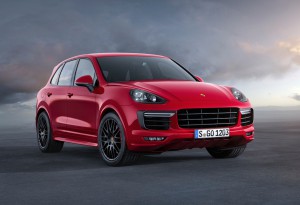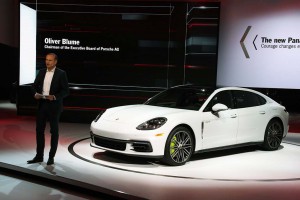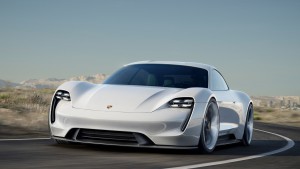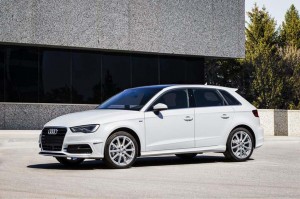
Porsche is facing allegations it rigged some versions of the Cayenne to boost exhaust noise at the expense of higher emissions.
Porsche is set to become the first German automaker to completely abandon diesel engines, the sports carmaker has confirmed.
The move, confirmed by CEO Oliver Blume in the Bild am Sonntag newspaper, comes in the wake of the emissions cheating scandal that has so far cost parent Volkswagen AG around $30 billion in fines, settlements and buybacks.
“There won’t be any Porsche diesels in the future,” Blume told the German newspaper, explaining that the company wants to concentrate on “what we can do particularly well,” notably, “powerful petrol, hybrid and, from 2019, purely electric vehicles.”
(German automakers facing new scrutiny over diesel rigging reports. Click Here for the latest.)
Porsche recently unveiled the Taycan, its first all-electric sports car which it plans to bring to market next year. It already offers a number of conventional hybrid and plug-in hybrid models. Proponents suggest that battery technology fits Porsche’s brand mission as electric motors can deliver tremendous off-the-line acceleration since they deliver maximum torque the moment they start spinning.
Like other VW brands, including flagship Volkswagen and high-line Audi, Porsche had adopted diesel technology as a way to deliver performance while also maintaining good fuel economy. But U.S. regulators in late 2015 accused the parent company of using so-called “defeat devices” to conceal the fact that its two main diesel powertrains failed to meet rigid emissions standards.
The automaker subsequently acknowledged the subterfuge, revealing it had rigged more than 11 million vehicles sold worldwide. It has since agreed to a series of settlements with U.S. and California regulators, while also agreeing to reimburse dealers and owners. A lawsuit filed by VW shareholders is now moving its way through the courts and could results in billions of dollars in additional costs.
(Investor suit against VW AG gets underway. Click Here for the story.)
The Volkswagen brand has abandoned diesels for the U.S. market, though VW AG Chief Executive Herbert Diess last month said the company will continue to use the technology in at least some of its products for sale in other markets.
Porsche, which operates semi-autonomously, now has decided to break with that decision. Porsche had stopped taking orders for diesels last February, though it remains unclear how soon diesels will be phased out entirely by the Stuttgart-based brand.
Porsche has already recalled more than 60,000 diesel-powered vehicles in Europe and according to Bild am Sonntag, it faces new allegations that it rigged some of its engines to increase exhaust sounds during hard acceleration at the expense of higher emissions. The strategy was covered up, according to German regulators, through the use of software designed to detect when a vehicle was undergoing emissions tests, disabling the defeat device. Blume acknowledged as many as 13,5000 Cayenne SUVs using V-8 engines may have been involved in the plot.
“The diesel crisis has caused us a lot of trouble,” Blume said, though perhaps not to undercut his bosses at Volkswagen AG, the executive said diesels remain a viable technology, insisting that “modern diesel engines are highly attractive and environmentally friendly.”
German manufacturers had grown particularly dependent upon diesel in recent years, using them to meet Europe’s increasingly stringent mileage and emissions standards. Germany and a number of other countries supported that strategy by offering significant tax discounts on diesel fuel.
But, since the VW cheating scandal erupted, attitudes have begun to shift. Several German cities have taken steps to ban older, dirtier diesel vehicles and Paris has threatened to ban diesels outright.
(German courts allow a ban on diesel engines in Hamburg, other cities Click Here for more.)
Until the VW scandal broke, diesels accounted for more than half of new vehicle sales in Europe. Demand has since plunged, however.
Regulators across the continent have been pressing the industry to phase out diesels in favor of electrified drivetrain technology. Norway has already scheduled a ban on all internal combustion engines by the middle of the coming decade and several other countries, including France and the UK, may follow.
A number of other European automakers have come under scrutiny for alleged diesel rigging since the VW scandal first broke.



